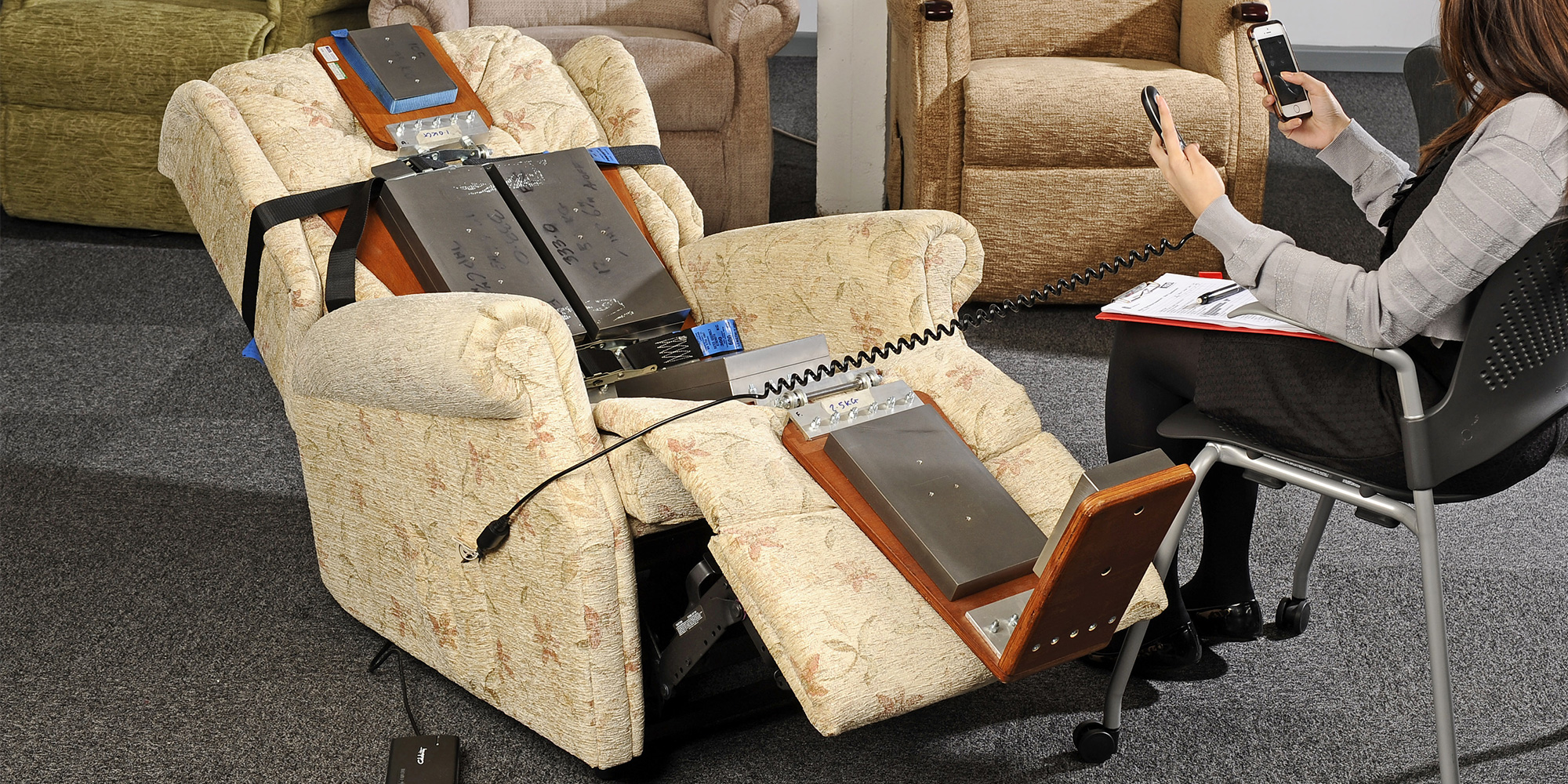DIN EN 1728 Furniture Seating Mechanical Performance Testing of Recliners
The DIN EN 1728 standard specifies the mechanical performance testing methods for furniture seating, including recliners. This service ensures that manufacturers adhere to international standards and produce high-quality, durable products. The test covers a range of scenarios designed to simulate real-world use conditions, ensuring that the furniture can withstand typical wear and tear without compromising safety or comfort.
The standard is particularly relevant in sectors where ergonomic seating solutions are required, such as office environments, healthcare facilities, and home furnishings. By adhering to DIN EN 1728, manufacturers can demonstrate compliance with international standards, which is crucial for market access and customer trust.
Testing involves a series of mechanical stress tests that evaluate the durability and stability of the furniture under various conditions. This includes load testing, fatigue testing, and impact resistance testing. The test parameters are designed to mimic typical use patterns, such as frequent reclining and adjusting movements. Proper specimen preparation is critical for accurate results, ensuring that the tested units represent a standard set of variables.
Instrumentation used in these tests can include specialized load testers, fatigue simulators, and impact analyzers. These tools provide precise measurements of stress points and failure modes, allowing for detailed analysis and reporting. The results are typically documented in a comprehensive report that details the test conditions, observed performance metrics, and any non-conformities.
Compliance with DIN EN 1728 is essential for manufacturers aiming to meet international standards and ensure product reliability. This service not only supports quality control but also enhances brand reputation by demonstrating commitment to safety and durability. By partnering with a reputable laboratory, companies can gain confidence in their products' performance and longevity.
The standard's focus on mechanical performance testing ensures that recliners are robust enough for long-term use without compromising comfort or design. This is particularly important in environments where furniture must endure high levels of daily activity. Adherence to DIN EN 1728 can also reduce the risk of product recalls and liability issues, as it provides a clear benchmark for acceptable performance.
Regular testing helps manufacturers identify potential weaknesses early on, allowing them to address issues before they become significant problems. This proactive approach not only improves product quality but also enhances customer satisfaction by ensuring that recliners meet or exceed expectations in terms of comfort and durability.
| Test Parameter | Description | Methodology |
|---|---|---|
| Load Testing | Evaluates the furniture's ability to support specified loads over time. | Apply standard load and measure deflection, stress points, and stability. |
| Fatigue Testing | Simulates repeated use conditions to assess long-term durability. | Subject the furniture to a series of repetitive movements and record any signs of wear or failure. |
| Impact Resistance Testing | Tests the furniture's ability to withstand sudden impacts, such as accidental collisions. | Perform drop tests from specified heights using standardized impact tools. |
Why It Matters
The mechanical performance testing of recliners under DIN EN 1728 is crucial for several reasons. Firstly, it ensures that the furniture meets international standards and can be trusted to perform reliably over time. Secondly, compliance with this standard enhances brand reputation by demonstrating a commitment to quality and safety. Thirdly, regular testing helps manufacturers identify potential issues early on, allowing them to make necessary improvements before products reach the market.
From an end-user perspective, adherence to DIN EN 1728 translates to better value for money. Consumers can be confident that the recliners they purchase will last longer and provide consistent comfort throughout their lifespan. This is particularly important in commercial settings where furniture must withstand heavy use without compromising on quality.
For manufacturers, compliance with international standards like DIN EN 1728 opens up opportunities for global markets. It also helps reduce the risk of product recalls and liability issues, as it provides a clear benchmark for acceptable performance. By investing in mechanical performance testing, companies can build trust with their customers while maintaining a competitive edge in the market.
Benefits
Achieves international standards for furniture seating performance.
Ensures long-term durability and reliability of recliners.
Enhances brand reputation by demonstrating a commitment to quality.
Reduces the risk of product recalls and liability issues.
Provides detailed performance metrics for informed decision-making.
Supports regulatory compliance in multiple jurisdictions.
The benefits of mechanical performance testing extend beyond mere compliance. It provides valuable insights into the performance characteristics of recliners, allowing manufacturers to make data-driven decisions that enhance product quality and customer satisfaction. By investing in this service, companies can gain a competitive advantage by offering products that are not only reliable but also meet or exceed expectations.
Use Cases and Application Examples
Office Furniture: Ensures that ergonomic recliners used in office environments are durable enough to withstand daily use without compromising on comfort.
Hospital Furniture: Guarantees the reliability of medical-grade seating solutions for patient care, ensuring they can handle frequent adjustments and movements safely.
Home Furnishings: Provides assurance that recliners in home settings are robust enough to last through years of use without showing signs of wear or failure prematurely.
These examples illustrate the wide-ranging applications of mechanical performance testing under DIN EN 1728. By ensuring that recliners meet the specified standards, manufacturers can cater to diverse market needs, from commercial offices to residential homes. This service is particularly valuable for companies seeking to establish a reputation for quality and reliability in competitive markets.





